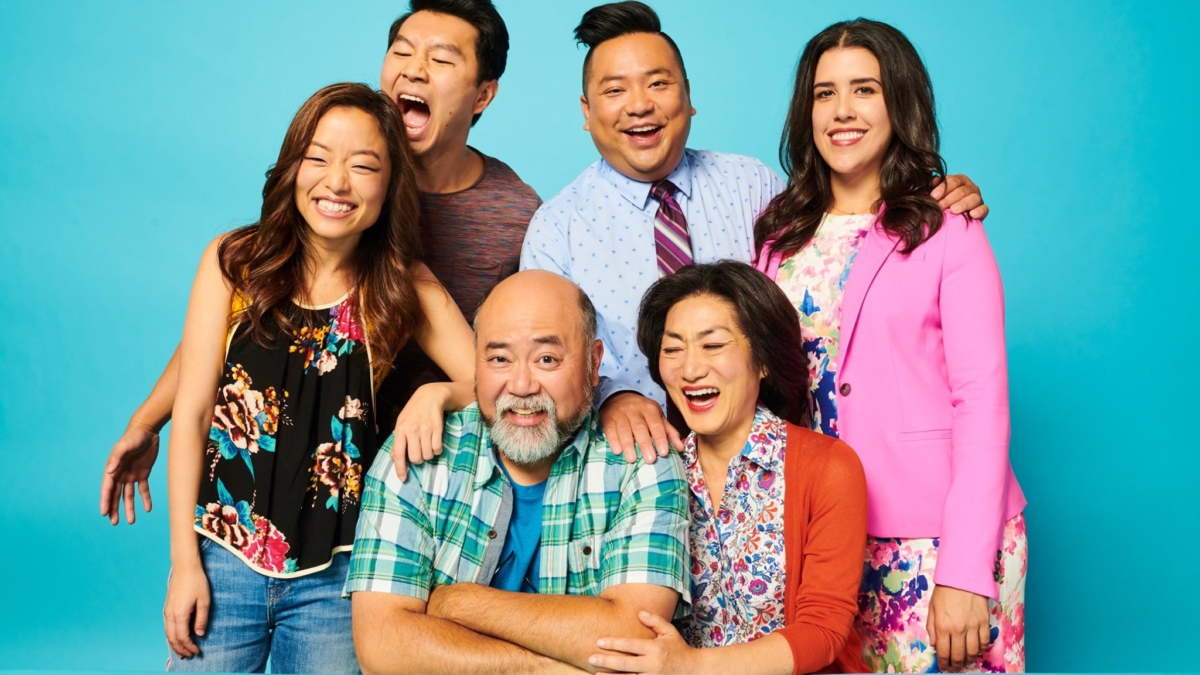Written By: Demi Guo
Spoilers alert.
“Kim’s Convenience” premiered its fourth season in January, continuing what has been a steady, comforting uptick as a show. Having begun as an on-screen episodic adapted from a theater play, it has since gained international attention … and last summer, main actor Simu Liu was officially cast as Shang-Chi in Marvel’s first Asian-led film.
Everything about “Kim’s Convenience” has been wholesome, like what a stable, predictable circle of friends is to a person who is used to being caught up in some new drama every week (guilty). Its cast is outspoken and charismatic on social media, and its approach to portraying different cultures is talked about in Canada, the United States and South Korea.
Its storytelling approach has not changed pace despite the meta-narrative. Liu acts as he ever does as Jung Kim, who reluctantly rebuilds his relationship with his father. Andrea Bang has reprised her role as Jung’s sister, Janet. She does so with unwavering vigor, though she has made her own moves. Recently, her fellow cast members congratulated her warmly on Instagram for her role in the Sundance indie film, Luce. Janet continues to struggle at school and, now that she’s moved out, her emotional maturity. The actors keep to their roles with full enthusiasm.
“Kim’s Convenience” also serves its best side dishes of awkwardness with the same precision and sequentiality. The main course is its selection of the semantics of interracial issues. In previous episodes, it confronted Janet’s frantic scramble to apologize to a waitress at whose expense she made a joke, as well as her pretending to be a North Korean activist to get into a film screening. This season, it’s Jung’s turn. He shares the discomfort at his workplace, as the show tackles code-switching.
Then there are the sunburst moments, where, instead of making us sit through painful situations where you feel secondhand embarrassment and shame, the relatability jumps out and makes us laugh instead. Appa and Umma are outrageous as ever. They continue their communication mishaps and stubbornness, driving the characters around them more and more up the wall.
The cast was invited to the Seoul International Drama Awards where they won Most Popular Foreign Drama in 2019, and the buzz is not just online. Even in my Kakao and regular IRL (in-real-life) chats, my South Korean friends and I often talk about how Appa is literally every Korean father I grew up with in my New York immigrant community, and yet not representative of their parents of the same generation at all. The same unabiding bitterness against everything Japanese (and Chinese) and stubborn traditionalism are just not there in every South Korean parent.
The show’s cultural credit is not just in giving another Asian group in North America their long-deserved, long-overdue representation, but also in using its subtlety to provoke more complex conversation. It starts with simple Reddit annoyance over Nayoung, who clearly represents a Japanese otaku more than a South Korean girl in 2017.Then there are the gray areas, like why there is such a gap between Korean American and South Korean parents. In my own talks with my South Korean friends, we have pinned two reasons: That many of those who left Korea before its economy started looking any good were the ones who were poorest and had no choice but to immigrate. Furthermore, Koreans who immigrated to North America jumped from the frying pan into the fire of starting all over as a minority.
Differences aside, the cast binds both audiences together. In 2018, Bang reconnected with her roots by visiting Korea in a much-televised CBC segment. She, Paul Sun-Hyung Lee (Appa) and Jean Yoon (Umma) were on the media circuit, and Lee interacts with North American and South Korean fans alike on his Instagram. The Chinese Canadian Liu is still a Subtle Asian Traits darling and frequent IG-Liver.
One must also mention “Fresh off the Boat,” which just said its farewell after an almost five-year run. There’s something precious in the Chinese American and Korean Canadian sitcoms, which premiered within a year of each other and kicked off a new age of Asian representation. They even had a crossover episode.
Both have spawned a legacy of names like Constance Wu of “Crazy Rich Asians” and Simu Liu, the new Shang-Chi, and no matter the fate of its Chinese American almost-counterpart, “Kim’s Convenience” walks forward. It leaves a trail of rising representation in its wake.
Season 4 of “Kim’s Convenience” originally aired on CBC and can now be streamed on Netflix.

